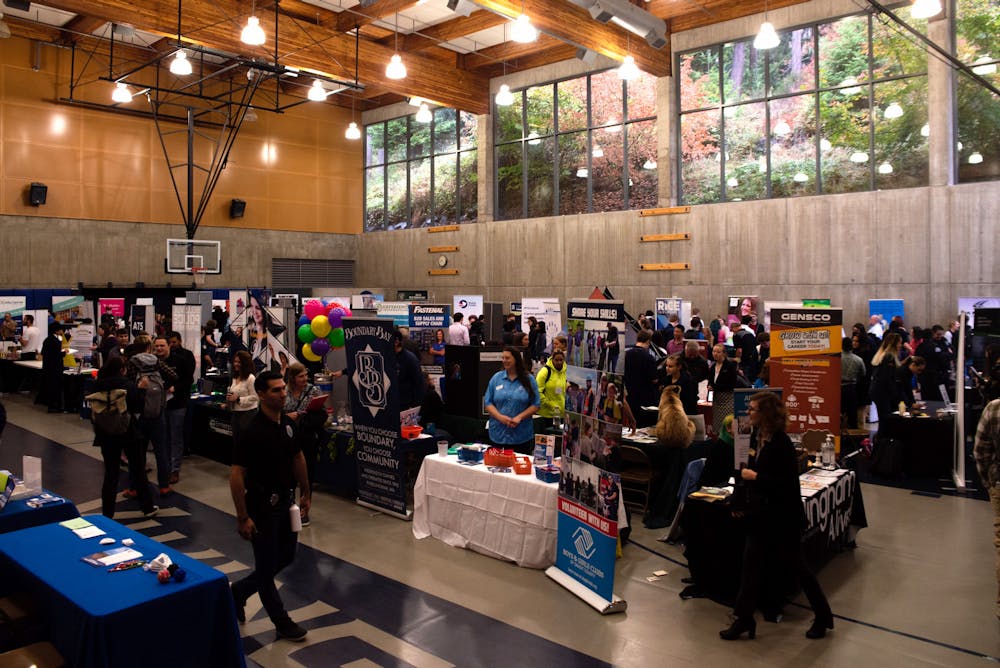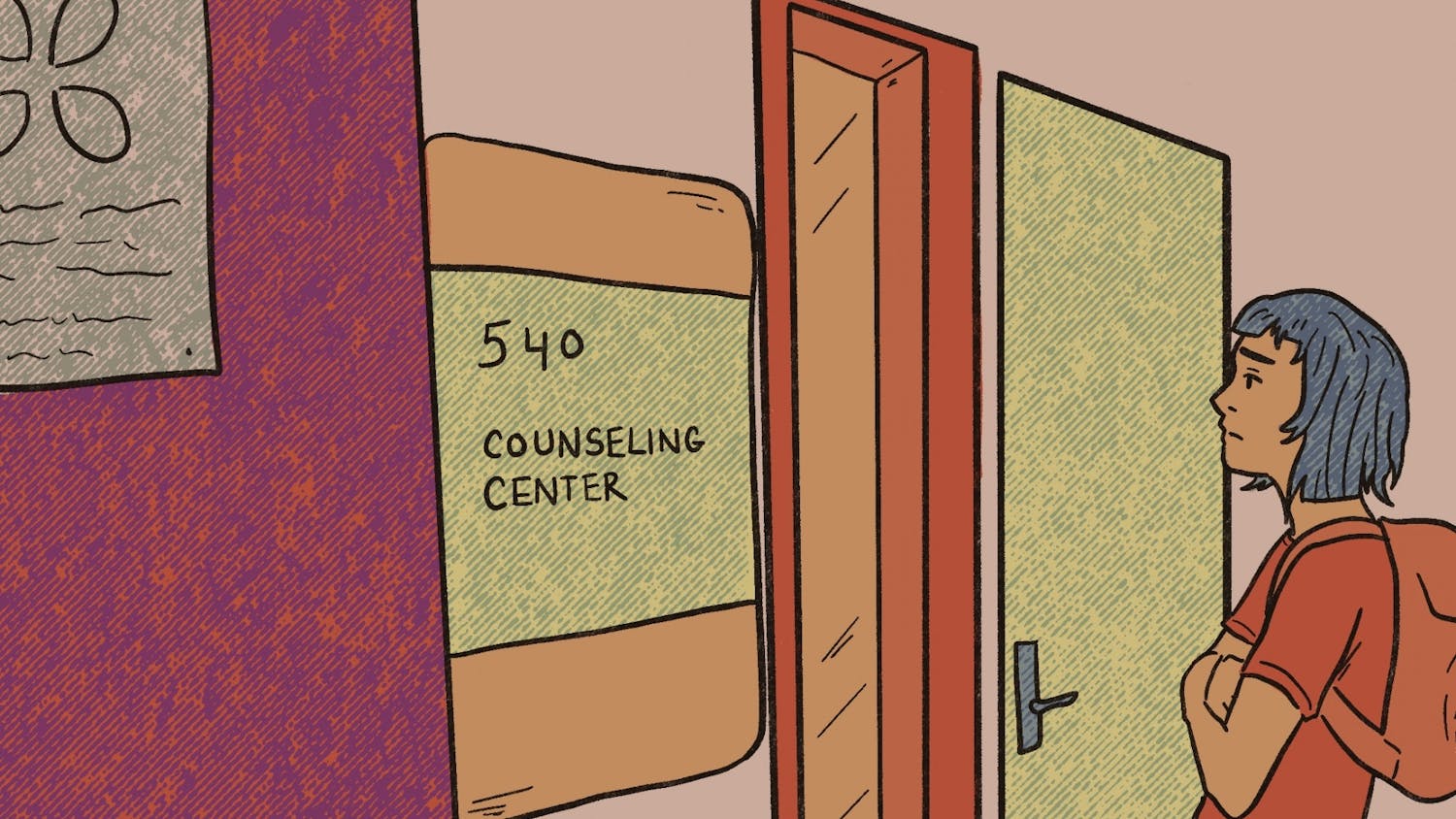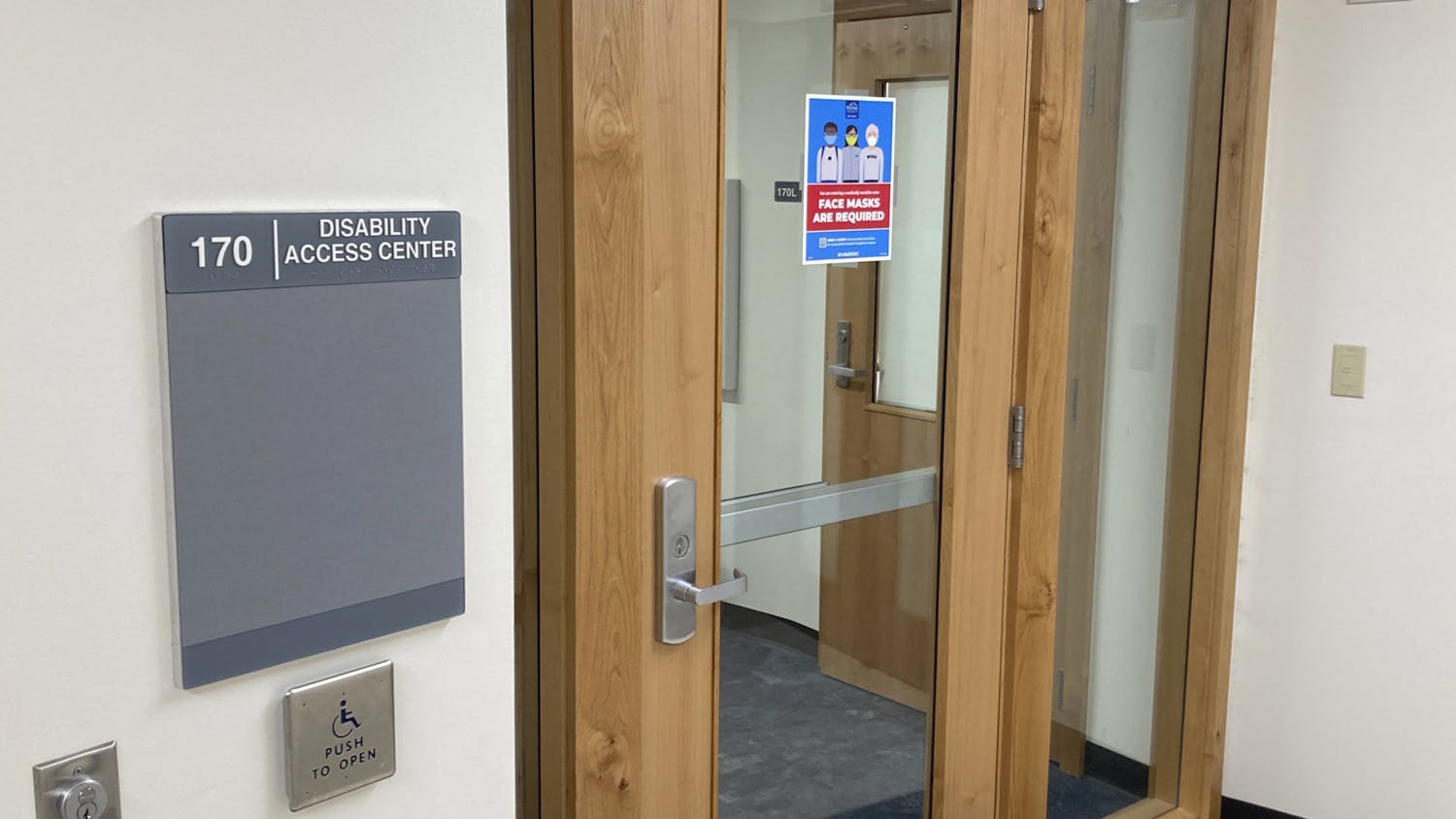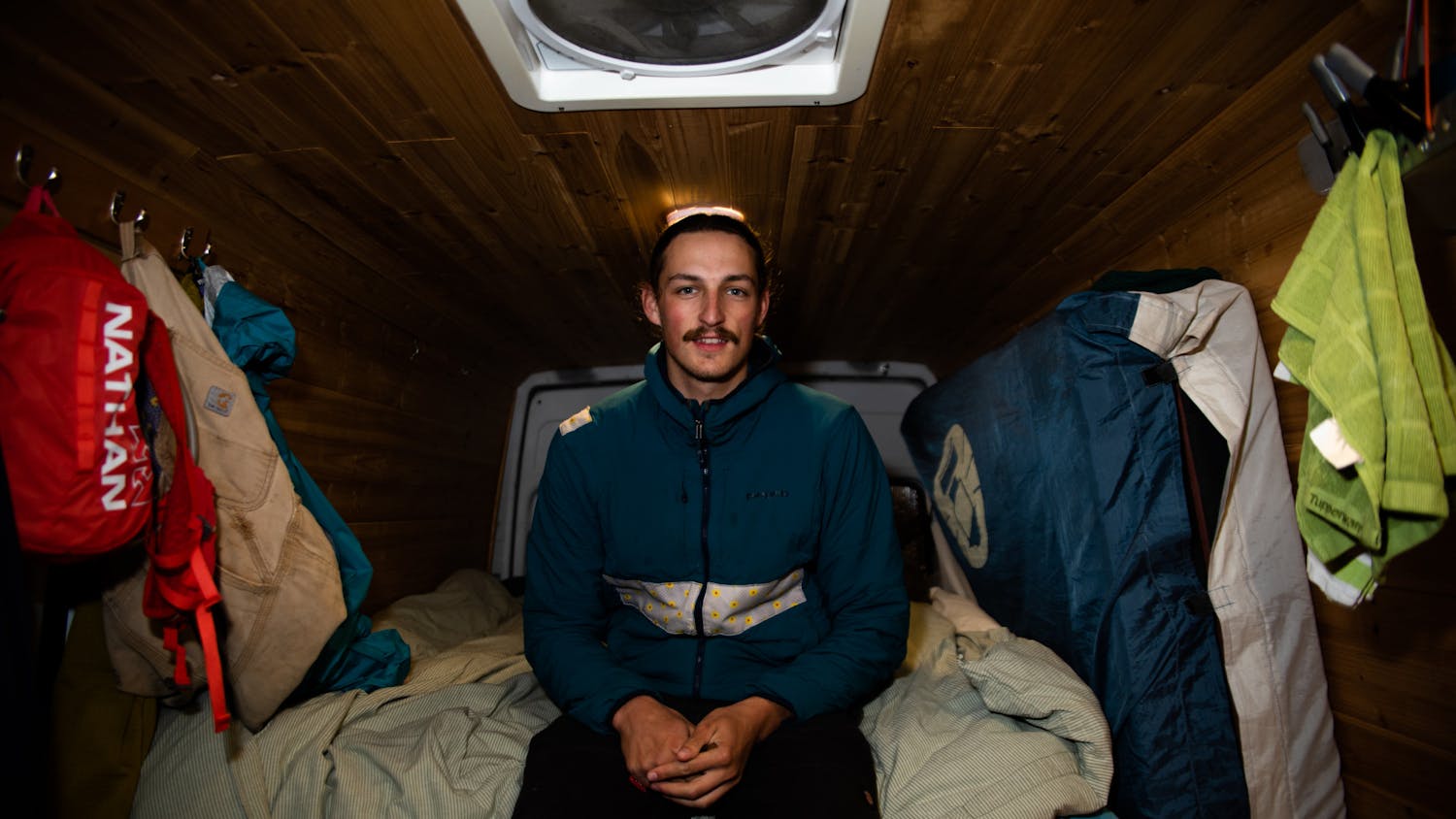The Career Services Center and the Disability Access Center have collaborated to make Western Washington University career fairs more accessible by implementing an Early Access Hour.
Inclusive spaces were held for participants for the first time at the Career and Internship Fair on Oct. 21 and again at the recent Technology and Engineering Career and Internship Fair on Nov. 3.
The hope from the Career Services Center is that by having fewer people, fewer loud noises and more direct conversations with employers, more students will feel comfortable attending.
“The goal of the Early Access Hour is to encourage participation from students and alumni who might feel intimidated to participate in what is typically a crowded and loud event,” Mindy Pelton, the interim director at the Career Services Center, said in an email. “We also encouraged participants to wear masks during this time, to support those with health concerns.”
Seventy-eight employers and over 650 participants attended the Oct. 21 fair. Pelton said that was the largest turnout of participants at an in-person career fair so far.
“When Early Access Hour participants arrived, everyone was welcomed in,” Pelton said. “No one was asked or needed to demonstrate what made them eligible for the Early Access Hour.”
Pelton said that by registering on Handshake, students could view the local and regional employers attending the Early Access Hour.
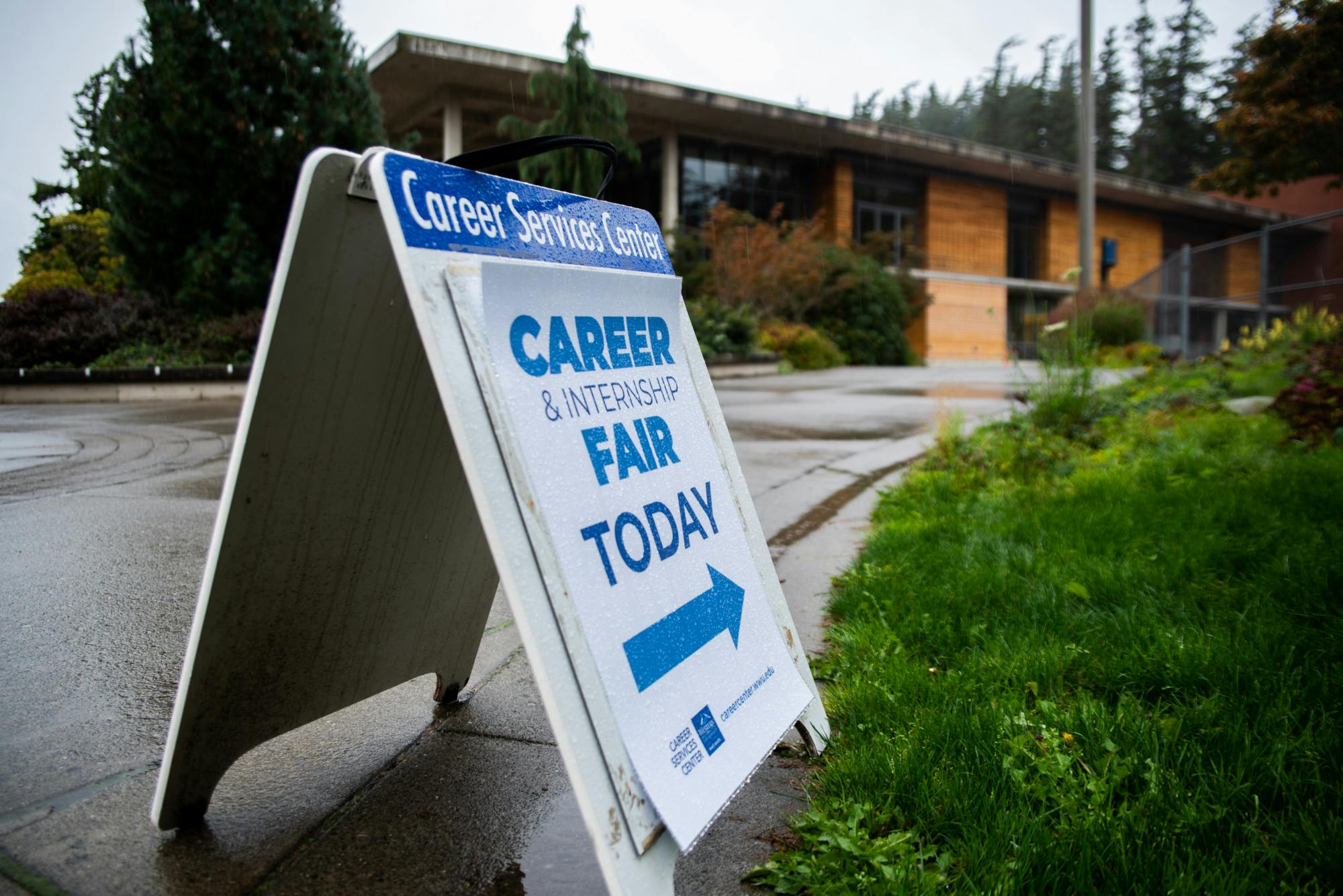
A sign from the Career Services Center sits outside the Wade King Rec Center on Oct. 21, 2022. It reads, “Career & Internship Fair today,” informing students that employers will be on campus and available to answer any career questions. // Photo by Finn Wendt
“It was inspiring how many automatically said ‘Absolutely, we’ll be there,’” Pelton said. “So, what was initially a four-hour career fair became a five-hour career fair.”
Because the Nov. 3 fair had only 28 employers registered, which was less than half of the lineup at the Oct. 21 fair, the Career Services Center hosted an Early Access Half-Hour instead of the full hour.
“With the uncertainty about modalities, uncertainty about COVID-19 and realizing that we have several years of students who have likely not experienced an in-person career fair, we were trying to look at this event through the eyes of someone who might have a preference for a different participation environment,” Pelton said.
Jeff Hart, the director of the Exceptionality and Disability Program, said he uses universal design and backward design when making his own classes accessible and that accessibility in all settings is important.
Hart said that everybody has value and if we create ways to allow everybody to be included, “society wins.”
“It’s learning that we have to change the way society and our community looks at people with complex needs, with serious disabilities and see the value in having them a part of their program or their job,” he said.
Hart also said we need to develop programs and systems that allow people with complex needs to reach their full potential, without making individuals or families responsible for fitting into the societal mold.
“If I’m trying to create a job fair that’s inclusive and accessible for all, I’m going to be thinking about any potential issues that might come up with a given population,” Hart said.
Hart believes the lanes must be wide enough to accommodate wheelchairs at career fairs. He also said Western must continue to consider people with sensory issues and people who may not communicate in the same way as others.
“We never know when our disability is going to become prominent or something is going to change in our life to make us impaired in some way that we weren’t previously,” Hart said.
He said “everybody wins” if we consider, and accommodate for, challenges before they arise.
Abby Forster, a third-year transfer student at Western, is also supportive of the Early Access Hour being implemented at future career fairs.
Forster said that career fairs can cause sensory overload, partly due to overcrowding. Students may face challenges in representing themselves well or attending at all, meaning they may not have access to the same opportunities.
“I could see a barrier for some people being like, ‘There’s so many people. It's going to be so busy. That’s not an atmosphere I want to be in, or I’m even capable of being in,’” she said. “So that inclusivity hour [would] be something I’m interested in.”
Forster said it’s important to advertise the Early Access Hour well, so students know the resource is available.
“I think it’s important because even if we reach just one student who would not have attended otherwise, that’s a success,” Pelton said, echoing Forster’s thoughts. “Increasing access for students is part of WWU’s and the Career Services Center’s mission — and removing barriers to participation is one way to accomplish that.”
Pelton said that participants are encouraged to share feedback about the Early Access Hour so the Career Services Center can further improve this experience. They can be reached via email at careers@wwu.edu.


